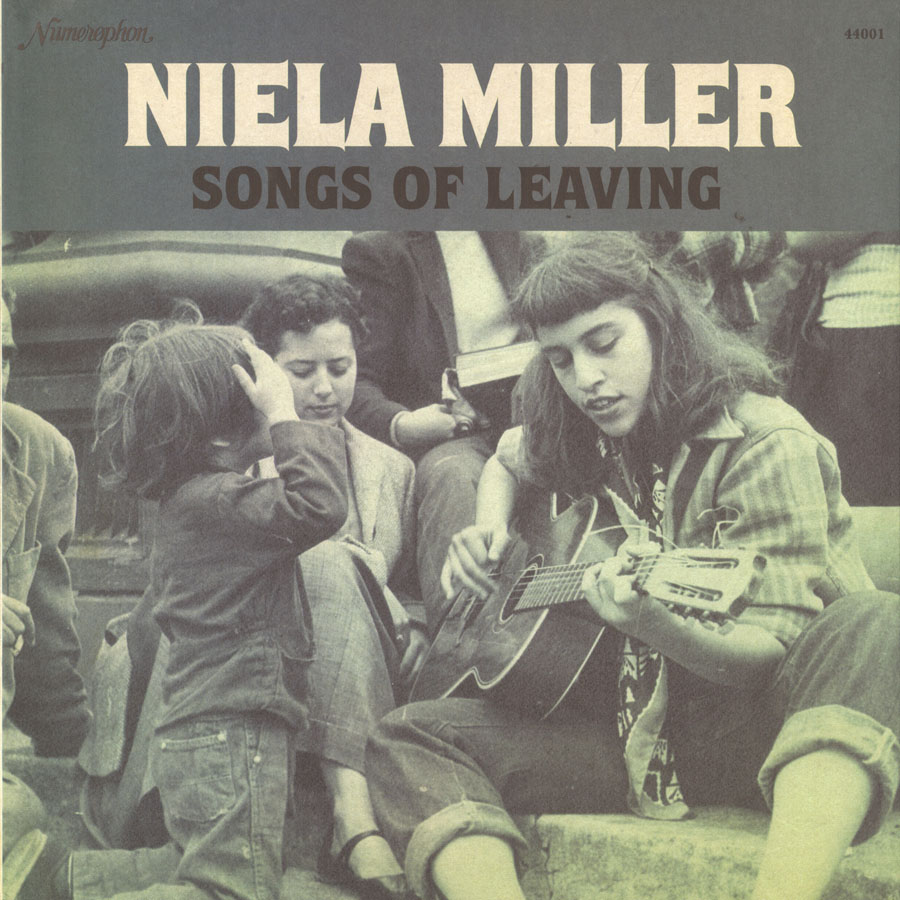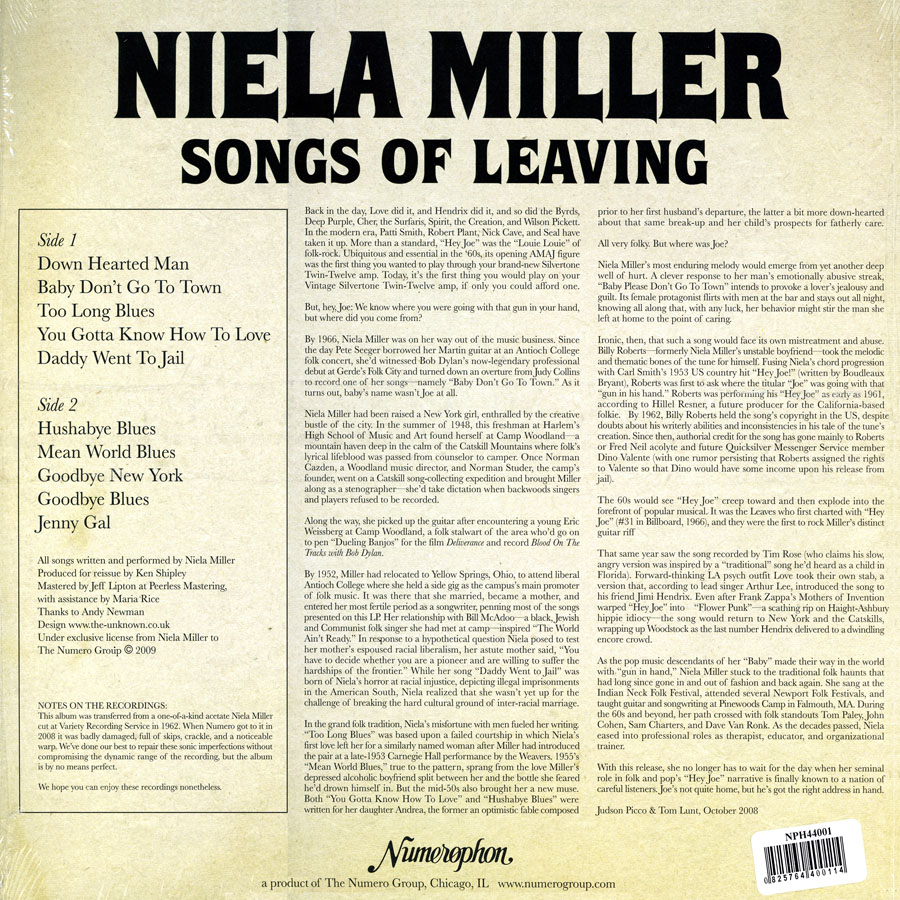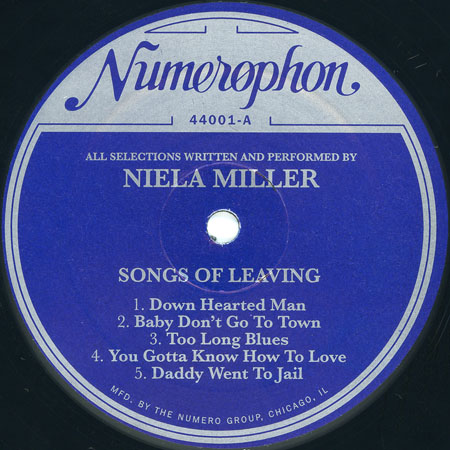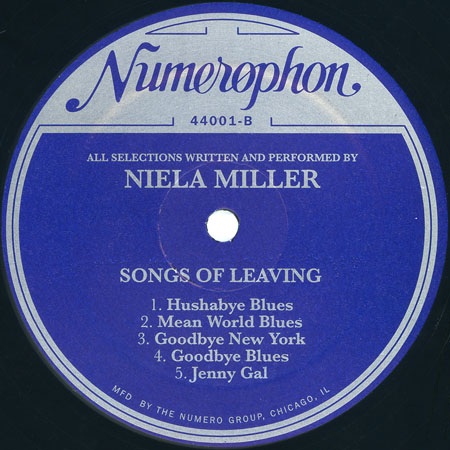

| HOME - ACCUEIL | NIELA MILLER | MY WANTLIST MA LISTE DE RECHERCHE |
CONTACT | LINKS - LIENS |
|---|
| Tim Rose / Jimi Hendrix covers | Leaves covers | Mariachi versions | Odd versions |
| Performers from 1965 to 1971 (sixties) | Tim Rose / Jimi Hendrix covers mp3 - list only | Hey Joe - Not Billy Roberts: Country / Others |


| NIELA MILLER:
SONGS OF LEAVING |
||
| Side 1 Down Hearted Man Baby Dont Go To Town Too Long Blues You Gotta Know How To Love Daddy Went To Jail Side 2 Hushabye Blues Mean World Blues Goodbye New York Goodbye Blues Jenny Gal All songs written and performed by Niela Miller |
Back in the day, Love did it, and Hendrix did it, and so did the Byrds, Deep Purple, Cher, the Surfaris, Spirit, the Creation, and Wilson Pickett. In the modern era, Patti Smith, Robert Plant, Nick Cave, and Seal have taken it up. More than a standard, "Hey Joe" was the "Louie Louie" of folk-rock. Ubiquitous and essential in the `60s, its opening AMAJ figure was the first thing you wanted to play through your brand-new Silvertone Twin-Twelve amp. Today, it's the first thing you would play on your vintage Silvertone Twin-Twelve amp, if only you could afford one.
But, hey Joe: We know where you were going with that gun in your hand, but where did you come from? By 1966, Niela Miller was on her way out of the music business. Since the day Pete Seeger borrowed her Martin guitar at an Antioch College folk concert, she'd witnessed Bob Dylan's now-legendary professional debut at Gerde's Folk City and turned down an overture from Judy Collins to record one of her songs--namely "Baby Don't Go To Town." As it turns out, baby's name wasn't Joe at all. Niela Miller had been raised a New York girl, enthralled by the creative bustle of the city. In the summer of 1948, this freshman at Harlem's High School of Music and Art found herself at Camp Woodland a mountain haven deep in the calm of the Catskill Mountains where folk's lyrical lifeblood was passed from counselor to camper. Once Norman Cazden, a Woodland music director, and Norman Studer, the camp's founder, went on a Catskill song-collecting expedition and brought Miller Gong as a stenographer she'd take dictation when backwoods singers and players refused to be recorded. Along the way, she picked up the guitar after encountering a young Eric Weissberg at Camp Woodland, a folk stalwart of the area who'd go on to pen "Dueling Banjos" for the film Deliverance and record Blood On TheTracks with Bob Dylan. By 1952, Miller had relocated to Yellow Springs, Ohio, to attend liberal Antioch College where she held a side gig as the campus's main promoter of folk music. It was there that she married, became a mother, and entered her most fertile period as a songwriter, penning most of the songs presented on this LP Her relationship with Bill McAdoo a black, Jewish and Communist folk singer she had met at camp-inspired "The World Ain't Ready." In response to a hypothetical question Niela posed to test her mother's espoused racial liberalism, her astute mother said, "You have to decide whether you are a pioneer and are willing to suffer the hardships of the frontier." While her song "Daddy Went to Jail" was born of Niela's horror at racial injustice, depicting illegal imprisonments in the American South, Niela realized that she wasn't yet up for the challenge of breaking the Nard cultural ground of inter-racial marriage. In the grand folk tradition, Niela's misfortune with men fueled her writing. "Too Long Blues" was based upon a failed courtship in which Niela's first love left lier for a similarly named woman after Miller had introduced the pair at a late- 1953 Carnegie Hall performance by the Weavers. 1955's' "Mean World Blues," true to the pattern, sprang from the love Miller's depressed alcoholic boyfriend split between her and the bottle she feared he'd drown himself in. But the mid-50s also brought her a new muse. Both "You Gotta Know How To Love" and "Hushabye Blues" were written for her daughter Andrea, the former an optimistic fable composed |
prior to her first husband's departure, the latter a bit more down-hearted about that saure break-up and her child's prospects for fatherly care. All very folky. But where was Joe? Niela Miller's most enduring melody would emerge from yet another deep well of hurt. A clever response to her man's emotionally abusive streak, "Baby Please Don't Go To Town" intends to provoke a lover's jealousy and guilt. Its female protagonist flirts with men at the bar and stays out all night, knowing all along that, with any luck, her behavior might stir the man she left at home to the point of caring. Ironic, then, that such a song would face its own mistreatment and abuse. Billy Roberts formerly Niela Miller's unstable boyfriend-took the melodic and thematic bones of the tune for himself. Fusing Niela's chord progression with Carl Smith's 1953 US country hit "Hey Joe!" (written by Boudleaux Bryant), Roberts was first to ask where the titular 'Joe" was going with that "gun in his hand." Roberts was performing his "HeyJoe" as early as 1961, according to Hillel Resner, a future producer for the California-based folkie. By 1962, Billy Roberts held the song's copyright in the US, despite doubts about his writerly abilities and inconsistencies in his tale of the tune’s creation. Since then, authorial credit for the song has gone mainly to Roberts or Fred Neil acolyte and future Quicksilver Messenger Service member Dino Valente (with one rumor persisting that Roberts assigned the rights to Valente so that Dino would have some income upon his release from jail). The 60s would see "Hey Joe" creep toward and then explode into the forefront of popular musical.. It was the Leaves who first charted with "Hey Joe" (#31 in Billboard, 1966), and they were the first to rock Miller's distinct guitar riff That same year saw the song recorded by Tim Rose (who claims his slow, angry version was inspired by a "traditional" song he'd heard as a child in Florida). Forward-thinking LA psych outfit Love took their own stab, a version that, according to lead singer Arthur Lee, introduced the song to his friend Jimi Hendrix. Even after Frank Zappa's Mothers of Invention warped "Hey Joe" into "Flower Punk",a scathing rip on Haight-Ashbury hippie idiocy, the song would return to New York and the Catskills, wrapping up Woodstock as the last number Hendrix delivered to a dwindling encore crowd. As the pop music descendants of her "Baby" made their way in the world with. "gun in hand," Niela Miller stuck to the traditional folk haunts that had long since gone in and out of fashion and back again. She sang at the Indian Neck Folk Festival, attended several Newport Folk Festivals, and taught guitar and songwriting at Pinewoods Camp in Falmouth, MA. During the 60s and beyond, her path crossed with folk standouts Tom Paley, John Cohen, Sam Charters, and Dave Van Ronk. As the decades passed, Niela eased into professional roles as therapist, educator, and organizational traîner. With this release, she no longer has to wait for the day when her seminal role in folk and pop's "Hey Joe" narrative is finally known to a nation of careful listeners. Joe's not quite home, but he's got the right address in hand. Judson Picco & Tom Lunt, October 2008 |
| NUMEROPHON a product of The Numero Group, Chicago, IL www.numerogroup.com |
||

